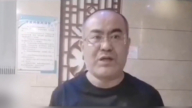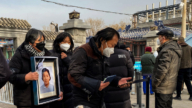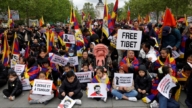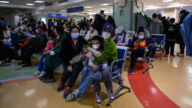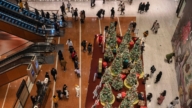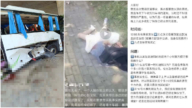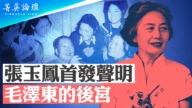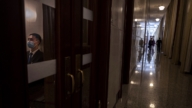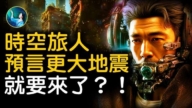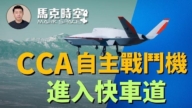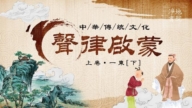【新唐人2011年6月17日訊】大陸工業污染問題嚴重,據人權觀察組織發表報告指出,估計中國多達數十萬兒童中鉛毒!在工業污染嚴重的省份中,地方政府限制病童接受檢測和治療,甚至造假檢測報告,掩飾真相,並採取拘捕、恐嚇等高壓手段,迫令受害者家屬和記者噤聲。
6月15號,人權觀察組織發佈,名為《我的孩子中毒了:中國四個省份面臨的公共衛生危機》的報告,報告中指出,從2009年1月到今年(2011年)5月,通過對河南、雲南、山西和湖南四省,一些遭受嚴重鉛污染的村莊進行調查,結果發現,地方當局不僅不重視兒童嚴重超標的鉛毒量問題,而且還限制當地居民進行血鉛檢測、拒絕公布或假造檢測結果,以及不讓鉛中毒的孩子接受治療。
報告中強調,由於當地化工企業工廠的非法排放,有些村莊和城市遭受嚴重的鉛污染。通過廢氣、廢水和粉塵,兒童們在日常生活中接觸到大量的鉛毒素,導致鉛中毒。以陝西省為例,僅鳳翔一個縣,就有615名受到鉛毒素感染的兒童,他們血液中的鉛含量已超過正常值。
朱先生(濟南化工高級工程師):“水中含鉛,主要來自污染源,鉛的冶煉廠和鉛的那些加工廠附近的水源。鉛隨著水體會稀釋,濃度會變化,但鉛永遠不會消失,永遠不會善解,永遠不會自己分解掉。”
人權觀察組織表示,鉛污染會損傷身體的神經、生物和認知功能,鉛中毒會導致兒童患上永久性的智能和生長問題,如智障和失聰。高度的鉛中毒還會導致死亡。
林傑樑醫師(臺北林口長庚毒物科主任):“血鉛偏高的兒童,實際上語文的能力會比較受影響。要把鉛除掉,是要做解毒劑治療。”
人權觀察組織事務部主任約瑟夫.阿蒙(Joseph Amon)在接受《美國之音》採訪時指出,中國受到鉛毒危害的孩子人數之多,範圍之廣令人擔憂。鉛毒問題並不局限於做調查的這四個省份,這個問題全中國各地都有。
調查研究中發現,中共當局或者拒絕給出血鉛檢測結果,或者告訴受害人他們因為離污染源比較遠,不夠資格申請治療,有的雖然已經查出血鉛含量高,但是地方當局告知,不能提供任何治療。有的地區的醫院並不給已確診的孩子提供治療。
就是這樣,在一些地區,一些工廠在被停工後仍然偷偷開工,而警察就守候在工廠門口,隨時準備驅散和帶走抗議的民眾。街上還有便衣警察行動,也有警察衝進抗議者家中,將他們強行帶走並拘留。
陝西省有居民在冶煉廠外示威被拘捕,湖南省也有七名受害病童的家長向外求助遭逮捕。也有記者反映,在採訪過程中受到恐嚇,被警察強制驅逐,而受訪對像也被警察盤詢。
人權事務部主任約瑟夫•阿蒙證實了這一點,那些受害兒童家長和一些撰寫鉛中毒問題的新聞記者,面臨來自政府的巨大壓力,如果他們敢出去抗議或者不放棄提出這些問題,他們就會有麻煩。很多人都不敢公開發表言論。
新唐人記者梁欣、唐睿、薛莉採訪報導。
Lead Poisoned Kids Silenced
A recent Human Rights Watch’s (HRW) report
estimates that hundreds of thousands of
Chinese children suffer from lead poisoning.
Local governments in severely polluted provinces
limit these children’s access to medical treatment
and even fabricate test reports to cover up the truth.
Through arrests and intimidation, the authorities have
managed to silence reporters and the victims’ families.
On June 15, HRW released a report titled
“My Children Have Been Poisoned¬—
A Public Health Crisis in Four Chinese Provinces."
Since Jan 2009 to May 2011, covert investigations
in Henan, Yunnan, Shanxi, and Hunan Provinces,
revealed that local authorities turn a blind eye to
the severe problem of lead poisoning in children.
They also provide limited access to lead testing;
deny lead poisoned children medical treatment,
refuse to publicize test results, or even fabricate results.
Due to illegal discharges from local chemical plants,
some villages and cities are seriously contaminated.
Kids are constantly exposed to a lot of lead toxins,
which eventually lead to lead poisoning.
For example, in Fengxiang County of Shanxi alone,
615 children have been sickened by lead toxins.
The lead levels in their blood were very high.
Mr. Zhu, Jinan Chemical senior engineer:
“The lead in water mainly comes from sources
near lead smelters and processing plants.
When lead is diluted by water, its density will change,
but it will never disappear or disintegrate.”
HRW said that lead contamination can damage the
body’s neurological, biological, and cognitive functions,
leading to permanent mental and physical problems.
High levels of lead poisoning can even lead to death.
Dr. Lin Jieliang, Director of Toxicology at the
Chang Gung Memorial Hospital in Taipei, Taiwan:
“Children with high blood lead levels will have
their linguistic skills greatly affected.
To get rid of lead, antidotes should be administered."
HRW director, Joseph Amon, told Voice of America,
“The number of lead poisoned children in China and
the scope of the problem is very troubling.
Lead poisoning is not confined to the four provinces
investigated, but it is in all parts of China."
Authorities routinely refuse to show test results
or tell victims that they don’t qualify for treatment,
because they live too far away from pollution sources.
Some kids are confirmed with high blood lead levels,
but local authorities still don’t provide treatment.
Some hospitals don’t provide drugs to diagnosed kids,
instead they’re told to consume milk, garlic, and apples,
in order to “detoxify."
In some areas, factories still secretly operate after
they’re “officially" closed, with policemen on guard,
ready to disperse and remove any protesters.
There are plainclothes police patrolling the streets.
Some even burst into homes to arrest protestors.
Some in Shaanxi were arrested for demonstrating.
Seven parents were arrested in Hunan for seeking help.
A reporter was harassed and expelled by the police.
His interviewee was also interrogated by the police.
HRW’s Joseph Amon also confirmed that
victims’ parents and reporters face enormous pressure.
If they dare to protest or keep asking questions,
they will be in trouble. Many are afraid to speak out.
NTD reporters Liang Xin,Tang Rui and Xue Li.


